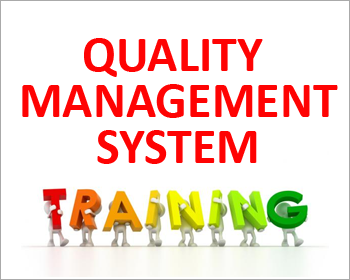
The cornerstone of a quality organisation is a robust quality management system. Though many small businesses may not have the resources to put into quality management, it still can be done effectively. We often see organisations forced or feel obliged to implement quality management systems when client their clients demand to work under a standard of accordance. On the other hand, there are many organisations set up quality management systems as an initiative. These organisations aspire to become more professional and make the quality of their products/services clear, measurable and controllable.
What is QMS?
A Quality Management System (QMS) is a process used to review the operations of products and services of a business. QMS helps identify the areas that require improvement in quality. QMS is necessary for all areas of business activity, regardless of the size of the company. A sound quality management system will help in:
- reducing wastage
- improve process control
- increase market share
- lower costs
- facilitate training
- Reach customer’s expectations
- Raise morale
ISO 9001 quality management training program typically gives an organisation more order and structure. This, in turn, benefits the quality of the products and service. Here are all the benefits of undergoing a quality management system training program:
1) Increased efficiency:
Business who go through quality management system training has the aim to maximise the efficiency and quality of their processes. As a part of the process, every employee will have to follow a strict guideline which will be put down as a part of the certification process. This will result in a smoother process when it comes to dealing with troubleshooting issues, transactions and training. Such procedures make it less draining in terms of time or financial outlay.
2) Better Morale:
The staff of the company need to be motivated and satisfied to perform well. Well-defined roles, management accountability, established training systems as well as a clear understanding of roles and responsibilities are everything that affects the employer/employee relationship. All the factors mentioned above affect the quality and success of the business. Total quality management system training programmes can help retain excellent staff rather than going through the entire process of re-hiring and re-training the newly hired. Great employees are irreplaceable.
3) International recognition:
ISO is a worldwide mark of quality management, making a business appear reliable and dependable. It is the goal of many companies to export internationally, and ISO accreditation will go a long way to establishing faith in the international business arena.
4) Process Improvement:
QMS lays down a system for everyone to follow, making it easy to track improvements and make changes wherever necessary. The laid-down system is carefully implemented and planned. This careful implementation guarantees results and helps you make the correct choices for your business and eliminate the risks of any costly mistakes.
When it comes to choosing between a more substantial business with no quality management system and small business with ISO certification, the small business will undoubtedly outshine the bigger rivals. It is because ISO certification is such a selling tool; it ensures that every contract will be won. QMS provides a robust customer experience. And LBTC offers all levels of Quality Management Training for your business. If you’d like to take your business to the next level, feel free to contact us for a consultation.

Amazing blog it is thankyou for sharing such a wonderful post.